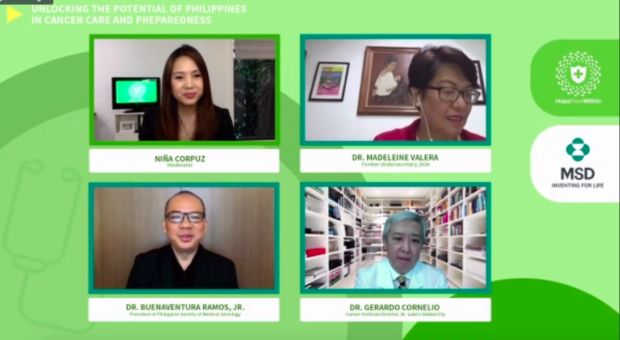
In 2018, more than 141,000 Filipinos were diagnosed with cancer— lung cancer and breast cancer being the top indications. Over 60% (approximately 86,337 lives) of those diagnosed with the dreaded disease succumbed to the illness. That is approximately 236 Filipinos dying each day from cancer, lung and breast cancers being the top indications.
These alarming statistics raised concerns around the country’s cancer care and control programs, which prompted the government’s issuance of the implementing rules and regulations (IRR) of the National Integrated Cancer Control Act (NICCA) in 2019 to help create statutory requirements to address and prioritize gaps in the current continuum of cancer care, and to integrate policies and programs for cancer prevention, detection, management, and survivorship or palliative care.This Act, along with the Universal Health Care (UHC) legislation, helps further increase access to much-needed health services while helping increase funding for national healthcare and, importantly, cushioning financial impact on the individual patient.
A study from the Philippine Cancer Society estimates that over 80% of Filipino families cannot afford to fund basic medical care from out of their own pockets; the Philippine National Health Accounts (PNHA), along with the National Statistical Coordination Board (NSCB) revealed that in 2007, patients’ cancer- related out-of-pocket expenditures amounted to 54.3% of the total health bill, while government contributions and local government unit (LGU) contributions amounted to around 13% of the total health bill each, and social insurance contributions amounted to just over 8%.
The burden of cancer in the Philippines
Following the implementation of the NICCA and the UHC last year, a 2020 report from the World Cancer Initiative placed the Philippines 10th out of 10 countries in the Asia-Pacific region in terms of cancer care preparedness. The Index for Cancer Preparedness showed the Philippines falling well below average in the realms of policy & planning, cancer care delivery, and health systems & governance. And while the Philippines is touted the only lower-middle-income country with a comprehensive cancer care plan (the NICCA), and a country that joins the ranks of many developed countries in terms of having proof of patient- organization involvement in cancer policy development, many opportunities and areas for improvement were presented in the report.
One such opportunity is to fully implement and put to practice the provisions in the NICCA, including gaining access to the full cancer registry and treatment options therein. To address concerns around the long-term sustainable access to innovative treatment options that can potentially add years to life and life to years of patients suffering from lung, breast, and other cancer indications, and to help inform public healthcare policy discussions surrounding health impact, a virtual media roundtable will be held.
The discussion, moderated by broadcast journalist and health advocate Nina Corpuz, will feature key opinion leaders from the medical field such as Dra. Madeleine Valera, MD, MScIH and former Undersecretary of Health at the Department of Health, and oncologist Dr. Gerardo Cornelio of St. Luke’s Medical Center to talk about how full access to innovative cancer treatment options by way of legislations such as the NICCA and the UHC help ensure more equitable cancer care for more Filipinos and give them chances at living life anew.
The Cancer Game Plan report
One topic of highlight for the roundtable engagement will include a discussion on the health impact projection or the Cancer Game Plan report. The research, conducted by the two key speakers along with top representatives from MSD in the Philippines, shows innovative treatment options like immunotherapy allowing patients to enjoy additional life-years, progression-free life years, quality-adjusted life years, avoidance of adverse events, and overall improved health gains between five- and ten-fold.
With these promising results, the importance of ongoing policy reforms such as the National Integrated Cancer Control Act is evermore highlighted, and the importance of finding solutions to provide equitable and sustainable access to these life-saving innovative treatments to more Filipinos is of ever-greater priority to help unlock the potential of the country in the realm of cancer care.
ADVT

